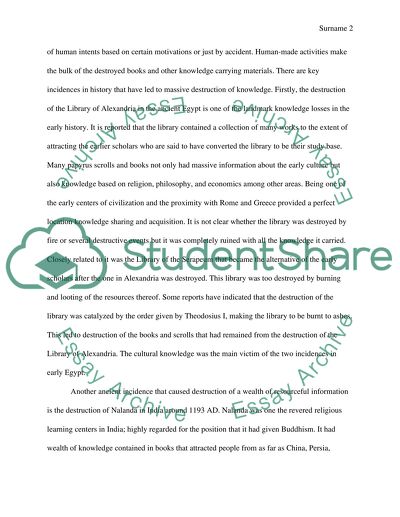Cite this document
(“Preserving Knowledge for Future Generation Essay”, n.d.)
Retrieved from https://studentshare.org/history/1498539-preserving-knowledge-for-future-generation
Retrieved from https://studentshare.org/history/1498539-preserving-knowledge-for-future-generation
(Preserving Knowledge for Future Generation Essay)
https://studentshare.org/history/1498539-preserving-knowledge-for-future-generation.
https://studentshare.org/history/1498539-preserving-knowledge-for-future-generation.
“Preserving Knowledge for Future Generation Essay”, n.d. https://studentshare.org/history/1498539-preserving-knowledge-for-future-generation.


